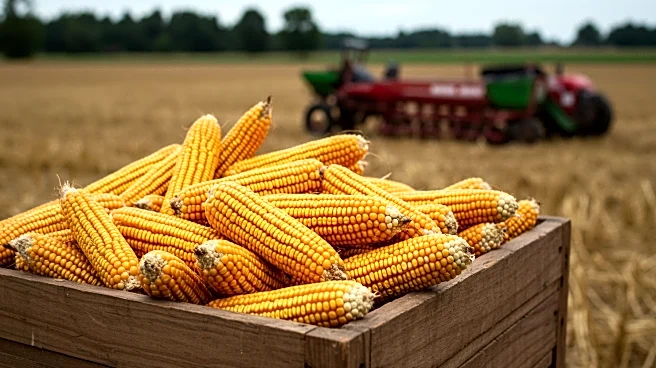What's Happening?
Farmers in Iowa are anticipating record-breaking corn yields, with the U.S. Department of Agriculture forecasting an increase of over a billion bushels compared to previous records. This surge in production is expected to lower commodity prices due to oversupply, impacting farmer profits. Concurrently, farmers are facing rising labor costs, exacerbated by increased expenses associated with H-2A visas for hiring foreign workers. The cost of these visas has risen significantly, adding financial pressure on farmers who are unable to pass these costs onto buyers.
Why It's Important?
The record corn yield presents a paradox for farmers: while high production levels are generally positive, the resulting oversupply can depress market prices, reducing profitability. This situation is compounded by rising operational costs, particularly labor expenses, which are critical for harvest operations. The financial strain could lead to economic challenges for farmers, affecting their ability to sustain operations and invest in future production. The broader agricultural industry may experience shifts in pricing dynamics, influencing national food supply chains and export markets.
What's Next?
Farmers may seek policy interventions or subsidies to mitigate the impact of low commodity prices and high labor costs. Discussions around visa cost reductions or alternative labor solutions could emerge as critical topics among agricultural stakeholders. Additionally, farmers might explore innovative strategies to manage surplus production, such as diversifying crops or investing in storage solutions. The agricultural sector may advocate for legislative support to address these economic challenges.









